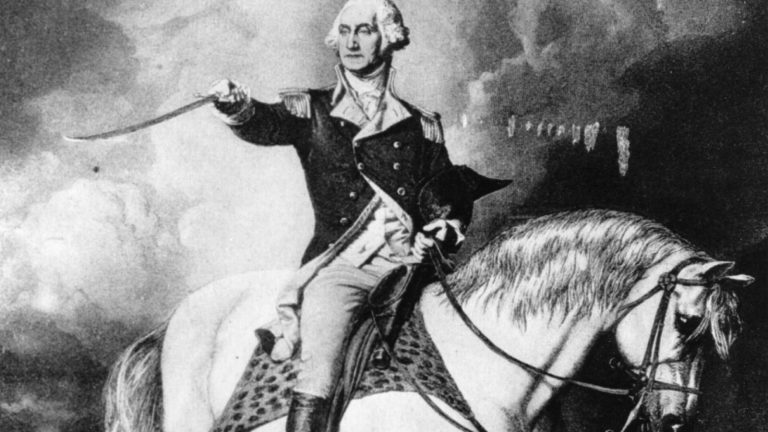With every Independence Day that passes, the foundation of the United States increasingly becomes a subject of contention. This divide in the American mind has been amplified over the past couple of years with the addition of curriculum like the 1619 project and Critical Race Theory. Rather than painting a picture of America being rooted in liberty, these programs and theories revise the nation’s founding to one built on the oppression of minorities. The most obvious example of this oppression being the continuation of slavery in the new world. Indeed, this only seems to be reinforced by the fact that the founding fathers themselves owned slaves, and did not include any measures in our founding documents to eliminate the practice. Admittedly, there is merit to understanding the darker parts of our history just as much as there is for understanding the brighter aspects. However, reducing the Founding Fathers to nothing more than slave owners who were only interested in liberty for those who looked like them is not only historically inaccurate, it ignores the very purpose of America’s foundation altogether.
To be fair, this new way of looking at American history didn’t come out of nowhere. If anything, it is an overcorrection. For decades, in American schools and culture, figures like the Founding Fathers have almost been deified. Just look at the way George Washington is depicted in the rotunda of the U.S. Capitol for example. He’s seen ascending to the heavens with angels surrounding him, almost as if it were a lost book of the bible. With imagery like that, it is incredibly difficult to view them as what they were—mortal men.
Mortal men are fallible, with plenty of flaws. Indeed, this was the case for all of the Founding Fathers.
Not one of them went through their lives without making mistakes, some of which were far greater than others. It isn’t wrong to point these mistakes out. It humanizes them, and teaches us how we can overcome similar obstacles in our modern pursuit for expanded freedom. It is wrong, however, to suggest that these mistakes defined their lives and legacies. To relegate them to their errors or to the circumstances of their time is to diminish their legacy. They weren’t great people because of a lack of failure. They were great people because no matter how often they failed, they got back up, and continued to build a freer world.
Indeed, this doesn’t apply to everyone who signed the Declaration of Independence or the Constitution. The founders weren’t in unison on every issue. Many of the delegates from South Carolina and Georgia are a primary reason why slavery persisted as long as it did. Many federalists, several of whom fought for independence like Alexander Hamilton, felt as though individual liberty came second to strong national and central authority—specifically in the executive branch. However, most of those who immediately come to mind when mentioning 1776—Jefferson, Adams, Franklin, etc.—absolutely deserve our celebration and admiration.
In the first season of my new program, Profiles in Liberty, I selected eight signers of the Declaration of Independence to highlight as true champions to the cause of freedom. One prominent individual highlighted is Thomas Jefferson. He has long been vilified as a slave holding founder who didn’t truly mean all men when he wrote that “all men are created equal” in the Declaration of Independence—he was actually talking only about white men. In truth, slavery was one of Jefferson’s chief concerns as he contributed to the birth of the new nation. Time and again, he fought, and often failed, to include the condemnation and elimination of slavery in our founding documents. Most notably, in his original draft of the Declaration of Independence, Jefferson condemned slavery as a “cruel war against human nature itself.” Not only that, he scolded King George III for being “determined to keep open a market where MEN should be bought & sold…” In describing African slaves as “MEN” in this section, he is affirming their humanity that so many others in southern society have long denied. Unfortunately, the delegation from Georgia and South Carolina was never going to approve this bold and decisive section. Yet Jefferson’s inclusion of this in his first draft is merely one instance that demonstrated his commitment toward eventual emancipation.
John Adams is another figure who made some serious missteps throughout his life, but remained a fierce proponent of liberty still worthy of praise. Unfortunately, his role in the Alien and Sedition Acts Crisis of 1798 severely tarnished his legacy. However, nearly 30 years prior, his defense of the soldiers involved in the Boston Massacre blazed an important trail. Because of his commitment to a fair trial, he demonstrated to America that no matter “our wishes, our inclinations, or the dictates of our passions, they cannot alter the state of facts and evidence.”
Benjamin Franklin taught us how important an active community is when preserving liberty. Perhaps nobody can be more credited for our understanding of localism and federalism than he can. Benjamin Rush was a trailblazer in advocating for criminal justice reform. He even supported ending the death penalty. Richard Henry Lee consistently warned Americans about the danger of giving up precious freedom in the name of strength, comfort, and security, even if it meant that he had to stand in the way of the original constitution.
These men and so many of the others who signed the Declaration of Independence were not uniquely special. In many ways, they dealt with the same trials, anxieties, and struggles that we deal with today. What set them apart was their determination to not sit idly by as liberty was on the line. No matter if the issue was slavery, centralization, or mob oppresion, they constantly moved forward in the name of liberty, no matter how often they stubbled. America has had plenty of dark episodes throughout its history. We cannot ignore those instances. But those episodes are the rejection of America’s founding principles, not the fulfillment of them. We should celebrate that America is a nation conceived in liberty. And in the same vein, we should celebrate the individuals who made it so.














Add comment